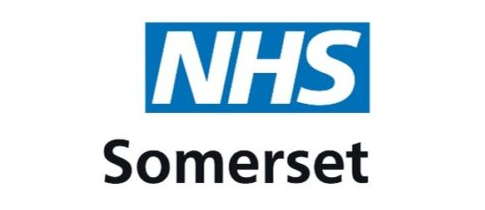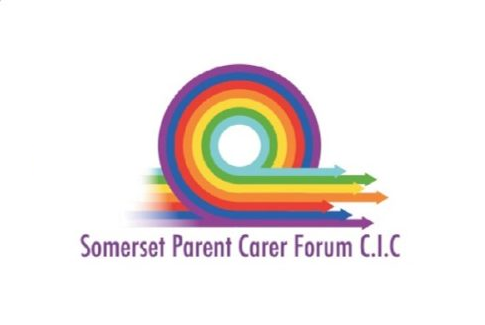Introduction
Education, health and care colleagues, as well as parent carers, children and young people in Somerset all believe that support is essential before any formal assessment.
A diagnosis is not needed to get support. There are services and tools that can help if you think you or someone you care for might be neurodivergent. These early steps can give useful ways to manage things and feel better, even without a diagnosis.
Phone the Children and Young People’s Neurodevelopmental Partnership Advice Line if you are a parent, carer, young person, or professional. They can:
- Give you advice including strategies to try
- Provide brief psychoeducation to help you understand how the brain works (if helpful)
- Tell you where to go for more help that suits your child
Phone number: 0303 033 3002
Open times: Wednesdays and Thursdays 9am to 12pm
WISE Up Workshops
Being a parent or carer of a child with extra needs can sometimes be tricky, and it’s not always easy to know what to do.
To help with this, the Somerset Parent Carer Forum has made some special workshops. These are based on what parents and carers have said they want help with.
The idea behind the project is to empower parent carers through Workshops for Information, Support and Education (WISE). All the workshops are delivered or co-delivered by someone with lived experience of being a parent carer.
Find out more on the WISE Up Workshops page.
Supporting your neurodivergent child
Supporting Your Neurodivergent Child is your essential guide written by parent carers to navigating autism, ADHD, and other conditions with confidence and compassion.
Filled with expert advice and Somerset processes, it helps you celebrate your child’s unique strengths and become their greatest advocate.
Whether you’re just starting your journey or looking for new ways to help your child flourish, this book is here to empower you every step of the way.
Available as a pdf or hard copy. Find out more on Somerset Parent Carer Forum website.
Neurodiversity Interventions – graduated response
The Somerset Neurodiversity Graduated Response document is designed to guide professionals in any educational or social setting. This includes those supporting electively home-educated children and young people, to effectively respond to identified needs. It is expected that these practitioners work collaboratively with families to understand a young person’s needs and put appropriate support in place.
Importantly, the purpose of a neurodiversity assessment is not to determine what support is needed, but to help young people and their families better understand their differences. A referral for a neurodiversity assessment with the Children and Young People’s Neurodevelopmental Partnership (CYPNP) will only be considered once needs have been identified and appropriate support has already been put in place.
What support looks like is different for every young person. In most cases it involves considering what reasonable adjustments are needed to remove barriers to young people’s participation or inclusion at school. Examples of this might include access to sensory resources, flexibility around school rules, or alternative arrangements that help them avoid situations or environments they experience as overwhelming. In other cases, the support may involve providing additional interventions, packages of support, or making onward referrals to other services. Whilst an assessment may help deepen understanding of a young person’s needs, it does not unlock access to additional support or services following a diagnosis.
Once needs have been identified and support has been in place for a reasonable period of time, a request for neurodiversity assessment can be made using the Next Steps Form. This form is designed to help practitioners from across the system, parents, and young people work together to provide evidence that may indicate Autism or ADHD.
Development advice sheets
Every child develops at their own pace. Advice Sheets from the Children and Young People’s Therapy Service help you spot developmental milestones and understand common variations in typical development. They also describe difficulties you may see and practical advice on what to do. While not exclusive to, many areas of advice relate to common areas often experienced by neurodivergent children. The advice sheets include topics such as:
- physical and motor skills
- play and sensory
- feeding and self-care
- communication and speech
As you put the suggested strategies into practice, journaling your experiences becomes incredibly valuable. Keeping a record of the specific strategies you’ve tried, how consistently you’ve applied them, and the impact they’ve had (both progress and challenges) creates robust evidence.
Sensory processing
Our Sensory Processing pathway offers advice and support to manage these challenges and improve wellbeing.
“Fussy” or selective eating
Many children go through stages of “fussy” or “picky” eating. This often happens between 14 months and 8 years old. At this age, children may be scared to try new foods. This is called food neophobia. It can be a stressful and worrying time for parent carers.
Some children, especially those with sensory differences, may find certain foods harder to eat. This can lead to a very limited diet. The good news is that most children eat more types of food as they grow older. Especially in their teenage years when they want to fit in with friends.
Restricted or selective eating becomes a concern when:
- Your child’s weight or growth is affected
- They eat 10 foods or fewer
- You think they may be low in iron
- They often have constipation
- You think they may have a food allergy
You can find easy guides and free webinars on Somerset’s NHS Patient Webinars website. These can help you support your child with eating. If things don’t improve after 4 to 6 months, you can self-refer to a dietitian for more help. You can also find out more about supporting services on our diet and eating page.
Accessing services
Services are available to support children and young people right from the start, without needing a diagnosis. You will find options both within school and for use at home. For details on what each service offers and how to get in touch, view their individual record:
- Parent and Family Support Advisors (PFSA)
- Family Intervention Service (FIS)
- Children and Young People’s Therapy Service – Occupational Therapy
- Children and Young People’s Therapy Service – Speech and Language Therapy
- Early Years SEND Service – Inclusion Advisers
- Early Years SEND Service – Early Years Area SENCOs
- Educational Psychology Service (EPS)
- Autism Friendly Libraries and The Somerset Neurodiversity Collection
- Somerset Parent Carer Forum (SPCF)
- Young Somerset
- SENDIAS
Local support groups and charities focussing on neurodivergence include:
- Autism Central
- NeuroConnect CIC
- ADHD Somerset
- Coffee, Chat and Support (Taunton)
- Frome Autism and ADHD Parent Forum
The CYPNP summarise these services and other national resources by area of need and share with families.





